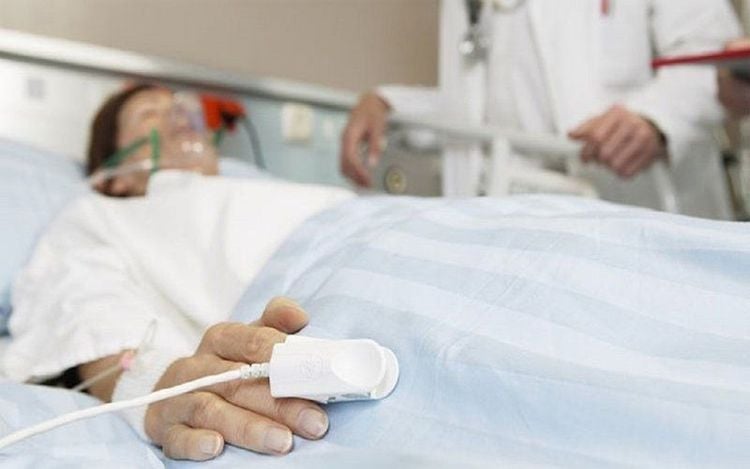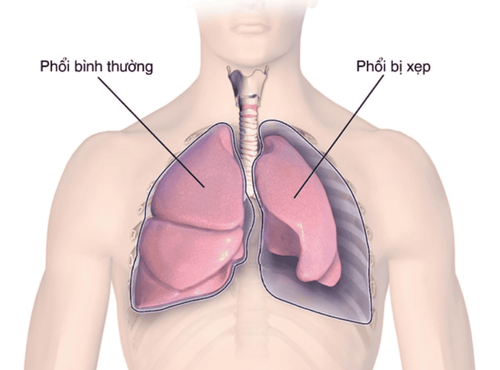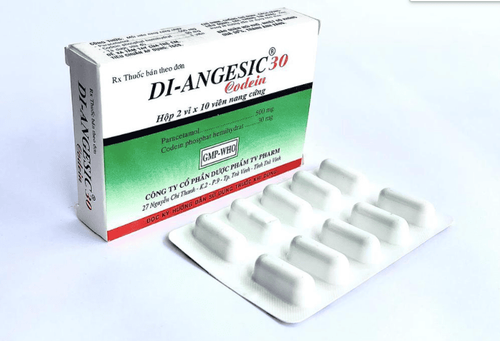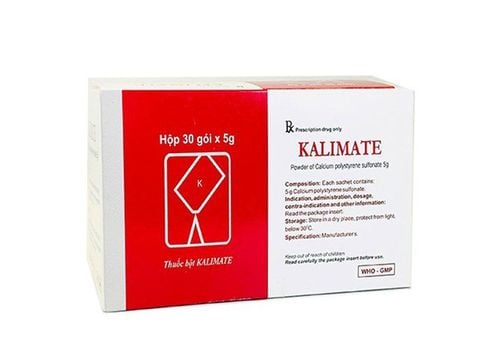This is an automatically translated article.
The article was professionally consulted by Specialist Doctor II Dinh Van Loc - Department of General Surgery - Vinmec Danang International General Hospital.
Anesthesia is one of the stages of anesthesia, in the stage of getting out of anesthesia, the patient may have some side effects of the drug and the effects after surgery. Therefore, during this period of anesthesia, it is necessary to pay attention to monitor to minimize and promptly overcome the complications caused.
1. What is anesthesia?
Anesthesia is the period when the patient is stopped using intravenous or inhalation anesthetics, the effects of the drug expire until the patient is fully awake and the body functions return to normal, such as respiratory function. breathing, circulation... The anesthetic drugs are usually eliminated quite quickly, this phase of anesthesia usually lasts for a few hours, about 2-3 hours.During this period of anesthesia, the patient is awake but still under the influence of surgery such as: Bleeding, postoperative pain.. and the effects of anesthesia, other supportive drugs such as sedatives, muscle relaxants, complications after extubation...
In the stage of getting out of anesthesia, the patient is monitored in the postoperative room until fully awake to detect abnormalities early and handle them promptly.

Thoát mê thường kéo dài từ 2-3 giờ
2. Notes in the period of anesthesia release
At any stage in the process of anesthesia, complications can occur that affect the patient's health, even in the stage of getting out of anesthesia after the patient has regained consciousness, there is still a risk of some occurrence. symptoms should be closely monitored for unusual signs during this period.After getting out of anesthesia, the patient may appear a number of complications such as:
Vomiting: Vomiting after getting out of anesthesia can be caused by the effect of the anesthetic causing vomiting or because the gastric juice does not go away. Upper airway obstruction such as: Tongue retraction, causing the tongue to press on the glottis is common in the elderly, obese people and children. Risk of early extubation: When anesthesia may require endotracheal intubation, extubation may cause the patient to cough, choke, and contract the larynx. Or respiratory failure due to extubation too soon, the patient is not fully awake, unable to breathe on his own. Therefore, it is necessary to evaluate the state of consciousness, cardiovascular respiration, the effect of anesthetic drugs and muscle relaxation before extubation (TOF > 90%) Glandular edema: Rare, may be caused by the effects of anesthetics, or by trauma during intubation, extubation. Cardiovascular collapse: May be caused by excess C02 in the post-anesthesia, surgery, blood loss but not enough compensation. Patients can hypothermia, especially when they first get out of anesthesia, after a while the temperature returns to normal. Malignant hyperthermia: Patients after anesthesia can lead to increased temperature, high fever from 40-41 degrees Celsius, cyanosis, convulsions, hyperkalemia, risk of death. Pneumonia, atelectasis: Common in the elderly and children due to airway obstruction. Mortality: A very rare anesthetic-related death that can occur in a rate of 1/250,000, varying on a case-by-case basis, such as a patient with a serious medical condition.

Xẹp phổi khi thoát mê thường xảy ra ở người già
When the patient is released from anesthesia and is taken to the postoperative monitoring room, it is necessary to closely monitor vital signs: pulse, temperature, blood pressure, and pulse rate. breathing, skin color (such as cyanosis or paleness risk of anemia), especially in children external signs are very important. Monitor for signs of respiratory failure: The patient has difficulty breathing, the nostrils rise and fall, and the respiratory muscles are pulled. The patient's position should be lying on his back, with a pillow under his shoulder, with his head tilted to one side to avoid reflux into the respiratory tract. It is necessary to ask and talk to the patient to stimulate the patient to recover quickly. Regularly check the return of muscle movement, noting the patient's return to consciousness, sensation, and movement. If the endotracheal tube is intubated, withdraw when the patient can breathe on his own, avoid withdrawing too soon when the patient is not awake, unable to breathe on his own or too late, it will irritate the airways and cause an asthma attack. To get out of anesthesia quickly, mediators are sometimes used to mediate the effects of the anesthetic, so that the patient wakes up faster. After getting out of anesthesia, there is a phenomenon of hypothermia, so it is necessary to keep the patient warm at this stage. Note that when the anesthetic is released, it does not mean that the patient will be fully awake like a normal person, but some effects can persist for many hours after the anesthesia has ended, such as still seeing some reduction in sensation. body until the anesthetic is completely gone from the blood.

Bệnh nhân cần được theo dõi vài giờ sau khi thoát mê
The anesthesia release phase is the period when the patient must be affected after a surgery and the effects of anesthetic drugs. Closely monitoring the patient when the patient is not awake is the best way to prevent and promptly handle complications.
Vinmec International General Hospital is one of the hospitals that not only ensures professional quality with a team of leading medical doctors, modern equipment and technology, but also stands out for its examination and consultation services. comprehensive and professional medical consultation and treatment; civilized, polite, safe and sterile medical examination and treatment space.
Doctor Dinh Van Loc graduated as a General Doctor in Hue in 1990, graduated as a Specialist Doctor in 2003 and as a Specialist Doctor in Anesthesiology and Resuscitation in 2017. Dr. Loc received advanced training in Anesthesiology. Anesthesiologist and has more than 23 years of experience in pediatric intensive care anesthesia, cranial nerve anesthesia, anesthesia resuscitation for liver surgery, esophagectomy at the Hospital.
Customers can directly go to Vinmec Health system nationwide to visit or contact the hotline here for support.














